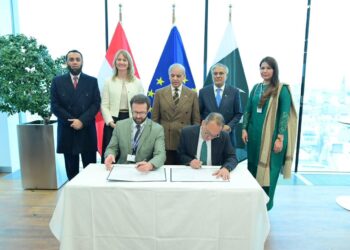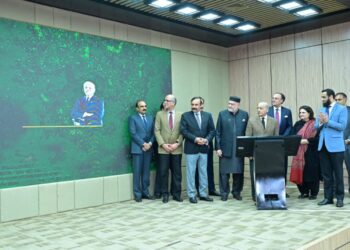Introduction: Boosting Agriculture through Financial Inclusion
Prime Minister Shehbaz Sharif has officially announced the implementation of comprehensive agricultural reforms in Pakistan, starting with the provision of easy and accessible loans for farmers. In a bid to modernize and revitalize the country’s agricultural landscape, the government is initiating a new era of public-private partnership in agricultural financing. The move is expected to empower farmers, increase productivity, and strengthen Pakistan’s rural economy.
The announcement was made during a high-level review meeting chaired by the Prime Minister at the Prime Minister’s Office, where officials and experts discussed proposals to uplift the agricultural sector through policy reform, infrastructure development, and increased investment.
Focus on National Agriculture Innovation and Growth Action Plan
During the meeting, Shehbaz Sharif was briefed on the National Agriculture Innovation and Growth Action Plan, a key initiative designed to uplift Pakistan’s agriculture sector. The plan includes a multi-pronged strategy focusing on:
- Increasing farmers’ income and agricultural productivity
- Strengthening the agricultural value chain
- Establishing a transparent and accessible system of agricultural loans
- Enhancing sustainable storage of agricultural commodities
- Introducing digital tools and artificial intelligence in farming
Officials emphasized that these measures are intended to create a farmer-centric ecosystem in which stakeholders can thrive while ensuring long-term sustainability and food security.
Launch of Easy Loan Facility for Farmers
A major highlight of the meeting was the upcoming inauguration of a new loan scheme aimed at providing easy access to agricultural credit for farmers. The government believes that similar to international best practices, a simplified and transparent agricultural loan system can transform the way Pakistani farmers manage their crops and invest in their land.
These loans will be made accessible through a mix of government institutions and private financial partners under a public-private partnership model. The Agricultural Development Bank is expected to play a central role in disbursing these loans, and urgent reforms are being planned within the bank to ensure efficiency, transparency, and timely service.
“Providing farmers with easy loans is not just financial support—it is the foundation of our agricultural reforms. We must modernize our approach and give farmers the tools they need to succeed,” the Prime Minister stated.
Role of Technology and AI in Agriculture
The briefing also highlighted how cutting-edge technology, particularly artificial intelligence (AI), can dramatically improve per-acre crop yields and farming efficiency. AI tools can help predict weather patterns, optimize irrigation, detect pest outbreaks, and advise on the best use of fertilizers.
By leveraging digital platforms and smart farming solutions, the government aims to make agricultural practices more data-driven and responsive to environmental changes. This will also provide farmers with real-time information to make better decisions, ultimately improving productivity and profitability.
Integration of Mechanization and Digitization
Prime Minister Shehbaz Sharif underlined the importance of mechanization and digitization in agriculture. He directed that upcoming development projects under the Public Sector Development Programme (PSDP) should place agriculture at the center. These projects will promote:
- Mechanized farming practices
- Digitized records of land and yields
- Expansion of agricultural credit
- Creation of farmer-friendly platforms
A digital agricultural revolution is on the horizon, with a focus on making technology accessible even to small-scale farmers. “We must bring the benefits of modern technology to every field, farm, and farmer across the country,” said Sharif.
Reforms in the Livestock Sector
In addition to focusing on crop production, the Prime Minister emphasized the importance of reforming the livestock sector. This segment plays a critical role in rural economies, providing income and nutrition to millions of households.
The government intends to introduce policies that improve veterinary services, animal health monitoring, breeding programs, and livestock market access. Enhancing the value chain in livestock can also contribute to increasing exports of dairy, meat, and other animal-based products.
Strategic Collaboration Between Federal and Provincial Governments
One of the key takeaways from the meeting was the emphasis on coordination between federal and provincial authorities. Prime Minister Sharif stressed that sustainable agricultural reforms require joint planning, implementation, and monitoring across all administrative levels.
A comprehensive strategy will be developed in consultation with provincial governments to ensure that regional agricultural challenges and opportunities are addressed. This approach aims to reduce bureaucratic hurdles and align national priorities with local needs.
Strengthening Agricultural Storage and Value Chain
Another critical aspect discussed was the need to increase the storage capacity of agricultural commodities. The Prime Minister directed that both long-term and short-term strategies should be proposed to prevent post-harvest losses and stabilize market prices.
Developing modern cold storage and warehousing facilities will protect farmers from seasonal price crashes and allow better planning and distribution of food supplies. This initiative is vital in ensuring food security and reducing dependency on emergency imports.
Empowering Small-Scale Farmers through Policy Reforms
Recognizing that the majority of Pakistani farmers are smallholders, the Prime Minister insisted that reforms and innovations should prioritize their needs. Policies must be inclusive, taking into account land size, regional challenges, and socio-economic barriers.
He also called for the design of special programs that train farmers in digital literacy, financial management, and sustainable farming practices. Subsidies and support schemes will be targeted at helping smallholders adopt new technologies and participate in national agricultural markets.
Agricultural Zoning and Export Promotion
To further enhance productivity and boost exports, Shehbaz Sharif suggested greater implementation of agricultural zoning across the country. This would help in:
- Identifying the best-suited crops for each region
- Ensuring efficient use of land and water resources
- Encouraging diversification of crops
Alongside zoning, he stressed the importance of enhancing the agricultural value chain to improve the export potential of Pakistani produce. Value addition in packaging, processing, and branding will be incentivized to help local farmers access global markets.
Stakeholders Present at the Meeting
The review meeting was attended by several high-level officials and experts including:
- Dr. Ahsan Iqbal, Federal Minister for Planning and Development
- Rana Tanveer Hussain, Federal Minister for Food Security
- Shaza Fatima Khawaja, Federal Minister for Information Technology
- Dr. Musaddiq Masood Malik, Federal Minister for Climate Change
- Ahmed Umair, Chief Coordinator for Agriculture
- Senior government officials and private sector representatives
Their collective insights and recommendations are expected to shape the future direction of agricultural policy in Pakistan.
Conclusion: A Roadmap for Agricultural Revival
The launch of easy agricultural loans is just the beginning of a broader vision to transform Pakistan’s agricultural sector. Through a combination of financial support, technological integration, public-private partnerships, and regulatory reforms, the government aims to create a sustainable and inclusive agricultural ecosystem.
Prime Minister Shehbaz Sharif’s call to action signals a renewed commitment to rural development, food security, and economic resilience. If implemented effectively, these reforms have the potential to uplift millions of farmers, strengthen the national economy, and place Pakistan among the leading agricultural nations in the region.

























